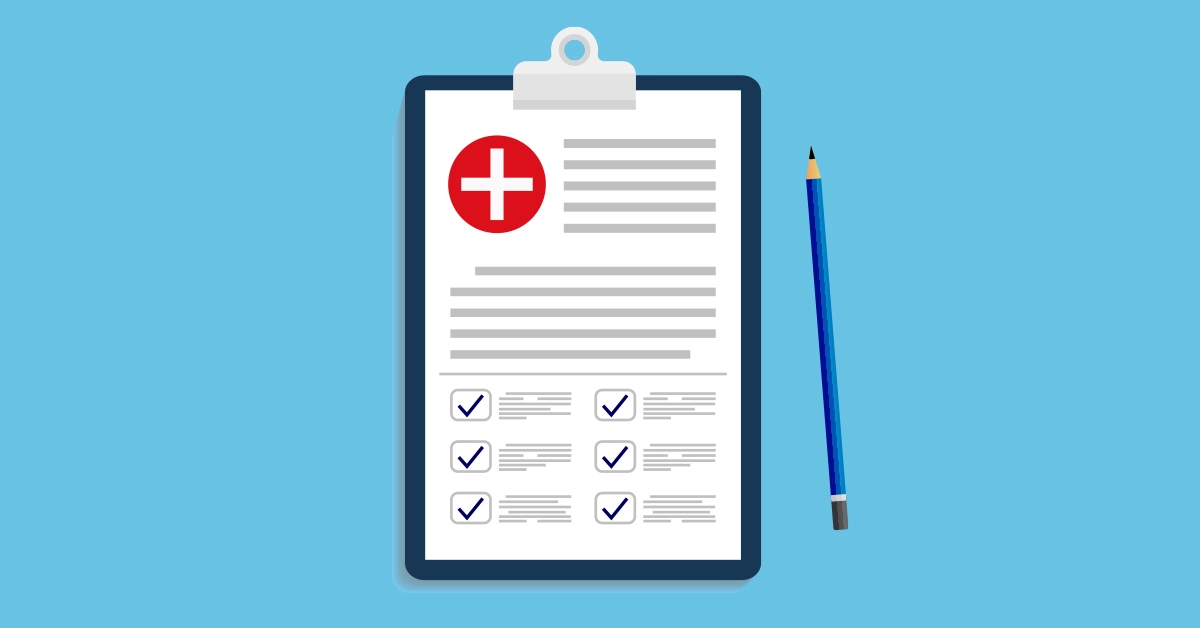Organizing Your Medical Information for Emergencies

When you suddenly find yourself in an emergency room, it is easy to become flustered and forget important emergency medical information. The key is to be prepared by keeping your information up-to-date and easily accessible.
Health Information Storage
One of the easiest ways to have all your health information at your fingertips is through the use of a patient portal. Many medical care facilities and insurance companies offer portals to store information electronically.
Another option is to keep your own online personal health record. Here, you are responsible for maintaining and updating the record. You also have full control over who has access to your information.
You may choose to put a list of emergency health information on your mobile phone or in a thumb drive you keep with you. If you prefer a hard print version of your record, it’s always best to print several copies. Paper copies can be kept in your vehicle’s glove box, purse, wallet, first aid kit, or on your refrigerator door.
Emergency Medical Information
Whether you keep your record in an electronic portal or on paper, the following information needs to be up-to-date:
- Your full legal name and address
- Your date of birth, age, and gender
- The medication you take, including name, dose, and schedule
- Any medical equipment you use
- If you wear contact lenses, have a pacemaker, implants, etc.
- Medical conditions such as epilepsy, diabetes, sleep apnea, etc.
- Medical consent form
- Allergies to food and drugs
- Immunization record
- Professional emergency contacts with a phone number, including your family doctor, the ambulance service, and poison control center
- Personal emergency contacts and phone numbers, such as a friend or a family member
This information needs to be easily accessible whether at you’re at home or away. Keep it in your purse, wallet, or vehicle glove box.
Home Record vs Portable Record
You should always have emergency health information available wherever you are. You also need a more comprehensive file at home.
At the top of the file, maintain a list of phone numbers and addresses for important contacts. This includes your medical care providers, pharmacy, hospital, clinics, therapists, family, friends, and neighbors.
On a separate page, provide a summary of your health history. Include the current medications you take, both prescription and over-the-counter. Other items to list include allergies, chronic conditions, and family history of health issues such as high blood pressure, diabetes, etc.
In addition to the extensive list of contacts and health history, the following information needs to be maintained in your folder in an organized manner:
- History of doctor’s appointments including the date of appointment findings (i.e., diagnosis, blood pressure, weight, temperature)
- Calls or conversations you had with your doctor or insurance company, including the date and time of contact
- Immunizations/shots you have had, including immunizations for overseas travel, flu vaccine, tetanus, shingles, etc.
- Prescription history, including the medication’s dosage, purpose taken, and the pharmacy that filled the prescription
- Lab results of all tests, x-rays, EKGs, MRIs, etc.
- History of hospitalizations and surgeries, as well as serious illnesses.
Your medical records need to be kept where they are easily found in an emergency. Make sure that everyone in your family knows where to find this information in the event of a medical emergency.
Be Prepared
The key to handling an emergency is to be prepared. Your local Corpus Christi ER provides high-quality emergency care with minimal wait times. We offer both emergency care and trauma care in a freestanding 24-hour emergency care facility.
We have several locations to serve you. Keep us on your emergency medical information list so you are prepared when an emergency arises.


